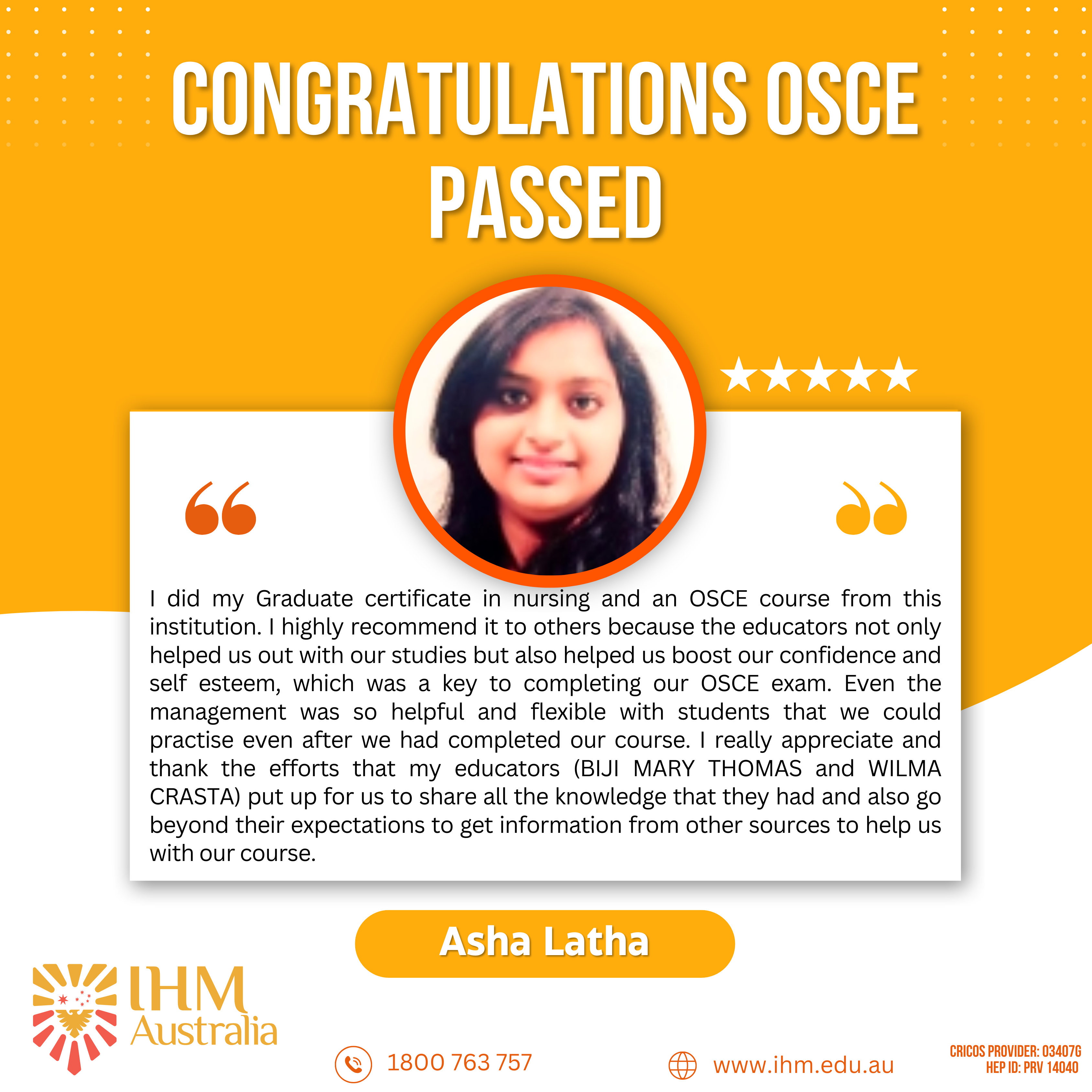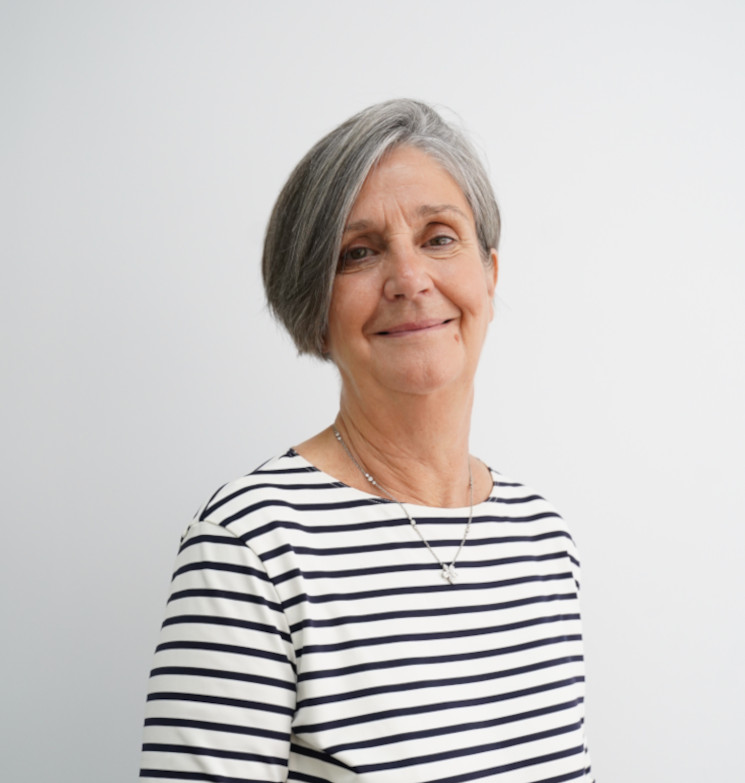Delivery Mode: On Campus
Units: 01
Duration: 02 Weeks
OSCE, which stands for Objective Structured Clinical Examination, is a performance-based assessment used in the medical and healthcare fields to evaluate practical and clinical skills. Candidates face multiple stations with simulated scenarios, interacting with standardised patients and medical equipment to demonstrate their clinical abilities, communication skills, and problem-solving skills. This format allows examiners to objectively assess candidates’ readiness for real-world practise, making it a crucial evaluation tool in medical schools and healthcare training programmes.
Objective Structured Clinical Examination (OSCE) is a widely used assessment method in various healthcare fields, including medicine, nursing, and allied health professions. It is designed to evaluate a candidate’s clinical skills, communication abilities, and professionalism in a standardized and objective manner. The OSCE typically consists of a series of stations, each assessing a specific aspect of the candidate’s clinical competency. These stations can involve interactions with standardized patients or simulated scenarios with mannequins or medical equipment. Within each station, candidates are given a predetermined timeframe to complete assigned tasks or demonstrate specific skills.
During the OSCE, candidates may encounter a range of scenarios, such as taking a patient’s history, performing a physical examination, making diagnoses, demonstrating procedural skills, or effectively communicating with patients and their families. The purpose of the OSCE is to ensure that healthcare professionals possess the necessary clinical and communication skills to provide safe and high-quality patient care. As a result, the OSCE is often used as a component of licensing exams, certification assessments, or as part of the educational curriculum in healthcare training programs. Its comprehensive and standardized approach makes it an invaluable tool in assessing the readiness of future healthcare practitioners.
The Objective Structured Clinical Examination (OSCE) is an assessment method used in various healthcare fields to evaluate candidates’ clinical skills, communication, and professionalism. It typically involves a series of timed stations, where candidates interact with standardized patients or participate in simulated scenarios.
The Registered Nurse (RN) OSCE Examination is held in Adelaide at the state-of-the-art Adelaide Health Simulation Centre. Candidates must make their own way to Adelaide for the test.
The primary purpose of the OSCE is to ensure that healthcare professionals possess the necessary clinical competence and communication skills to provide safe and effective patient care.
To be eligible for the OSCE exam, you must first pass the NCLEX-RN exam. Your OBA dashboard (AHPRA website) will let you know if you are eligible after you have received your results from AHPRA and offer you to submit a payment for the OSCE.
Before you are able to book the OSCE date, candidates must pay the price for each examination sitting. The exam team will provide the candidate an email with two available dates for scheduling within five days of confirmation of payment.
The training is offered on campus for four weeks; face-to-face sessions will take place Monday to Friday. Our labs will be available for students to practice or ‘touch-up’ their skills in preparation until their OSCE test dates – this service is provided free of charge to all IHM OSCE students.
IHM’s nursing simulation labs are meticulously developed to correspond to the NMBA’s registration standard requirements for nurses prior to the implementation of Outcomes-Based Assessment when IHM was offering a bridging program for nurses called EPIQ-RN. All nursing labs in all three locations are identical and can accommodate between 30 and 50 students. However, the OSCE for Registered Nurses (RNs) program has been designed to give the maximum help possible to overseas registered nurses preparing to sit for the Registered Nurse (RN) OSCE examination, and cohort numbers have been limited to 10-15 students each intake at each site. This is to ensure that students receive as much support as possible in order to pass the OSCE on their first attempt.
The training is offered four days a week from 9 a.m. to 5 p.m. Everyday, students can practice or ‘touch-up’ their abilities in preparation for their OSCE examination. Lab access for students from 7 a.m. to 9 p.m.
You will receive expert guidance and supervision at IHM. Students will be provided with labs and practice equipment. This thorough curriculum is meant to prepare students not only for OSCE success but also for safe nursing practice in Australia.
Students may continue to practice after the two-weeks till the time the student is successful in getting a positive result. Our lecturers are also pleased to provide you with some complimentary sessions before your exam to boost your confidence and do some last-minute preparation.
Adelaide Health Simulation (AHS) is located within the University of Adelaide in South Australia. AHS have two separate locations where the examination may be hosted. At this stage, there are no other examination centres in Australia.
The OSCE consists of 10 stations, with each OSCE station running for 10 minutes: 2 minutes reading time and 8 minutes performance time. Candidates should arrive no more than 30 minutes prior to the time advised their registration opens. Once candidate has progressed through all 10 stations, the examination will finish and candidate will be asked to leave all equipment outside the station. Candidate will then listen to the post examination briefing and escorted from the building by the AHPRA invigilator.
Results are released within 6 weeks of the examination date. Candidates will receive an email communication which will include a formal notification of results and the next steps to be undertaken.
Each Registered Nurses (RNs) OSCE station evaluates a candidate’s ability to perform a specific clinical skill, as well as their ability to manage a patient’s care holistically. It is critical, then, that the treatment offered inside each station takes into account the patient’s unique circumstances and is adapted to their specific needs.
Candidates will get hands-on training with a manikin and humans. Because manikins are used as the patient in the exam centre, it is critical for candidates to display the same amount of empathy and engagement as they would with a genuine patient. They will be educated to treat these manikins as patients, as the exam centre will have both manikins and simulated patients.
You must hold current registration as a Registered Nurse (RN) in your home country.
You’ll be prepared for the Outcomes-Based Assessment (OBA) in Australia if you complete the OSCE for Registered Nurses (RNs) training. You will gain a thorough grasp of the OSCE exam at the Adelaide Health Simulation Centre through this program.
Students will be able to formulate working diagnoses, analyse data and images, request and interpret investigations, and enhance their communication skills at the end of the training.
Many aspects of the OSCE for Registered Nurses (RNs) training will teach overseas nurses, notably in terms of objective, uniformity, and flexibility of clinical situations that may be tested, which indicates superiority over conventional clinical evaluation. It may be used to evaluate students at various levels of training in a short amount of time, across a wide range of abilities and problems. In order to prepare for the exam, this training will remove any preconceptions and allow all nurses to go through the same scope and requirements.
If you are an internationally qualified nurse or midwife (IQNM) who wishes to register in Australia, you will need to complete the Self-check before applying for registration. This is an online check where you will need to enter your qualification information into the Self-check. Based on your qualification you will be assigned to one of three streams for registration. The three streams are:
IQNMs that do not hold a relevant qualification (under section 53 of the National Law) or do not meet the required assessment criteria will need to upgrade their qualification in Australia before being eligible to apply for registration.
Click here to know more!90 mins of video orientation and quiz based on that video.
At this stage you will have to upload all the attested documents as required.
Multiple choice questions exam, the National Council Licensure Examination for Registered Nurses (NCLEX-RN) is an online test taken through Pearson VUE test centres in most countries.
This e- learning module must be completed within the first 6 months of becoming a registered nurse in Australia.
For more Information
Face to Face Delivery
To create an effective OSCE preparation program, follow these general steps:
Remember that preparation is key, and consistent practice will help build your confidence and competence. Be proactive in seeking resources and support to ensure you perform at your best during the OSCE.
| Total Tuition Fee : | AUD $2,000 |
| Administration (Non-Tuition) Fee : **Only applicable to international students. |
**AUD $250 (Non Refundable) |
We would like to inform you about a recent surge in cyber scams. Your security is of utmost importance to us, and we want to ensure that you stay safe from potential threats.
Scammers have been employing sophisticated tactics to deceive individuals and steal sensitive information. It’s essential to be vigilant and cautious when dealing with online communications and transactions.
For IHM’s students, it’s good to know that IHM’s bank account details are not shared through email. Instead, the information is accessible through the secure Student Hub under Student Invoice & Payment. This method ensures that only authorised users with secure login credentials can access and view the information.
Additionally, making payments through the IHM website provides another secure option for transactions, ensuring that personal and financial details are handled in a safe and protected environment.
For any questions or concerns related to payments or account details, students should reach out to IHM directly through official contact channels (ihmaccounts@ihm.edu.au) to ensure the highest level of security and privacy.
Our partnerships are built through positive, transparent, and engaging collaboration, and we’re grateful for the strong relationships we’ve built over the lifetime of IHM. These partnerships may vary in their nature but they all share the common fact that there’s mutual benefit and a strong sense of purpose to move the healthcare industry forward.
We encourage Nursing institutions, Hospitals, Healthcare Organisations and nursing associations to submit their expression of interest to become our partners!
Our industry and clinical partners provide physical access to products that benefit the simulation experience for students at IHM. Other partners provide opportunities to develop clinical skills at their facilities, such as nursing homes and hospitals. We also provide opportunities to upskill staff with the latest programs.


Get an answer on courses, costs, careers as well as facilities, entry requirements or just about
anything else relating to studying at IHM.
We are here to help you!